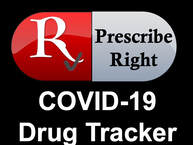|
COVID-19 Vaccines
Pfizer and BioNTech announced results from a Phase I trial (NCT04955626), where patients received a third Pfizer-BioNTech COVID-19 vaccine dose eight to nine months after the second. Antibody titers elicited after the third dose were 5 to 8 times higher for the original COVID-19 virus, 15 to 21 times higher for the Beta variant, 5 times higher in 18 to 55 year-olds for the Delta variant and 11 times higher for 65 to 86 year-olds for the Delta variant. An Israeli study of data from an HMO database found a third dose of the Pfizer-BioNTech COVID-19 vaccine to be 86% effective in people aged over 60. The U.S. Department of Health and Human Services (HHS) announced the government’s plan for a booster (third) dose of the mRNA vaccines(Pfizer-BioNTech and Moderna) to begin in September, if approved by the FDA and recommended by ACIP. If approved, booster vaccinations would begin on September 20, 2021, with health care providers, nursing home residents, and other seniors, who received their second vaccine dose at least eight months ago. Data is still being examined for the Johnson & Johnson vaccine, but it is anticipated a booster will also be needed. The booster decision was based on data from three studies published by the CDC on 8/18/2021
NIH updated its recommendation for use of monoclonal antibodies and convalescent plasma in the management of COVID-19. NIH recommends that either casirivimab plus imdevimab (Regeneron) or sotrovimab (Vir) be used for the treatment of outpatients with mild to moderate COVID-19 who are at high risk of clinical progression. NIH recommends against the use of bamlanivimab plus etesevimab (Lilly) due to resistance from the Gamma and Beta variants. NIH now recommends that casirivimab plus imdevimab or sotrovimab be considered for patients with mild to moderate COVID-19 who are hospitalized for a reason other than COVID-19 if they otherwise meet the EUA criteria for outpatient treatment. The recommended monoclonal antibodies may also be considered for hospitalized patients with severe COVID-19, who have not developed an antibody response or who are not expected to mount an effective immune response to SARS-CoV-2 infection. The EUAs for casirivimab plus imdevimab or sotrovimab does not cover use in hospitalized patients, but the drugs may be available though an expanded access program. NIH recommends against the use of low-titer COVID-19 convalescent plasma and the FDA has removed it from the EUA. NIH recommends against the use of high-titer COVID-19 convalescent plasma for the treatment of hospitalized patients with COVID-19 and normal immunity. For patients with impaired immunity, NIH found insufficient evidence for or against use. NIH also found insufficient evidence for or against use of high-titer COVID-19 convalescent plasma in non-hospitalized patients with COVDI-19. Comments are closed.
|
Stay informed, subscribe to the Prescribe Right Pharmaceutical Pipeline Tracker
Archives
January 2023
Categories |
Services |
Company |
Support |
© COPYRIGHT 2015. ALL RIGHTS RESERVED.
|


 RSS Feed
RSS Feed